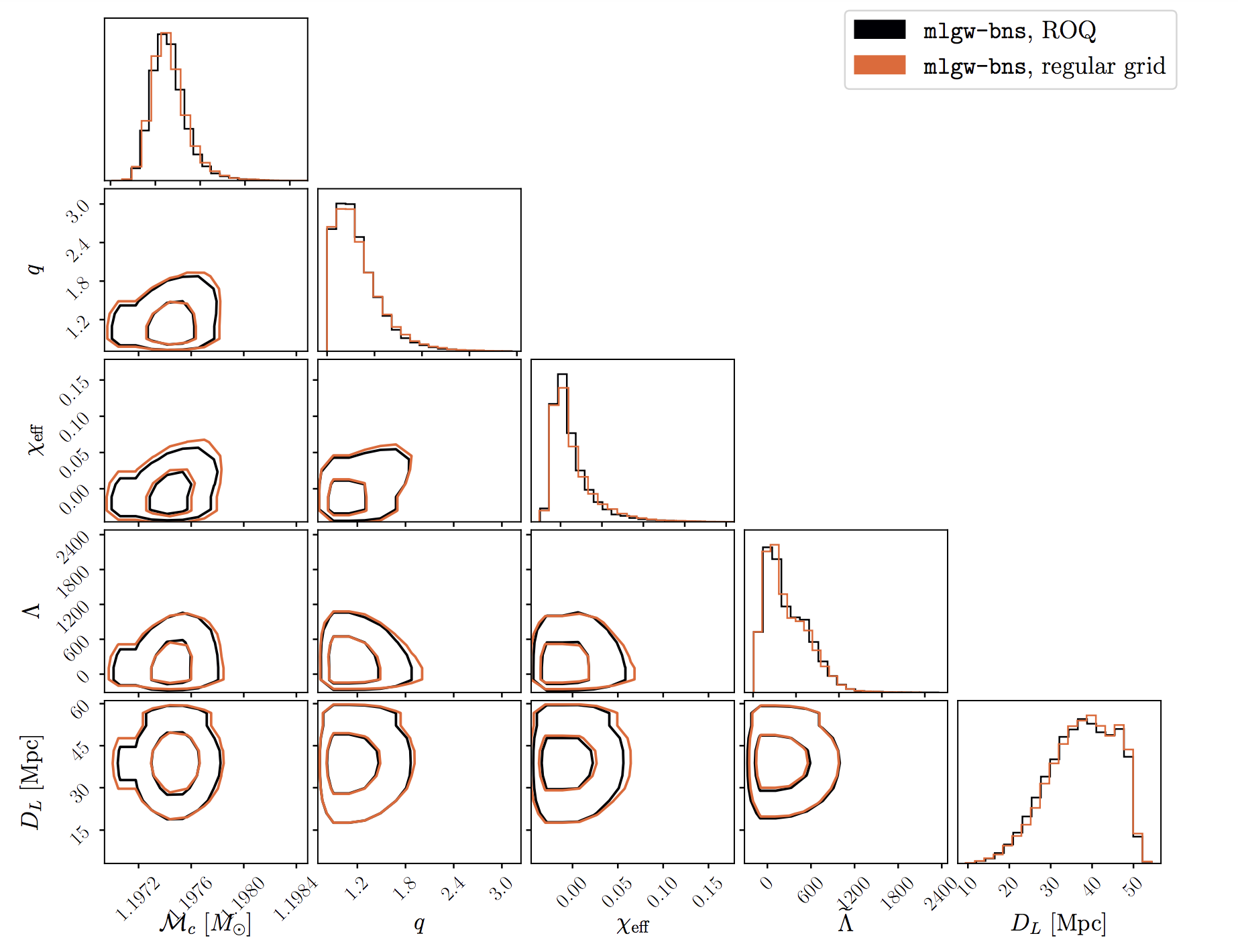Combining effective-one-body accuracy and reduced-order-quadrature speed for binary neutron star merger parameter estimation with machine learning
Jacopo Tissino, Gregorio Carullo, Matteo Breschi, Rossella Gamba, Stefano Schmidt, Sebastiano Bernuzzi
Preprint on arxiv:2210.15684 [gr-qc]
Published:
We present mlgw-bns, a gravitational waveform surrogate that allows for a significant improvement in the generation speed of frequency-domain waveforms for binary neutron star mergers, at a negligible cost in accuracy. This improvement is achieved by training a machine-learning model on a dataset of waveforms generated with an accurate but comparatively costlier approximant: the state-of-the-art effective-one-body model TEOBResumSPA. When coupled to a reduced-order scheme, mlgw-bns can accelerate waveform generation up to a factor of ~35, outperforming all other approximants of similar accuracy. By analyzing GW170817 in realistic parameter estimation settings with our scheme, we showcase an overall speedup against TEOBResumSPA greater than an order of magnitude. Our methodology will bear a significant impact on the scientific program of next generation detectors by allowing routine usage of accurate effective-one-body models.

